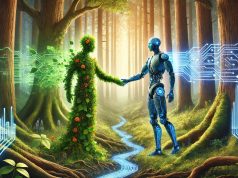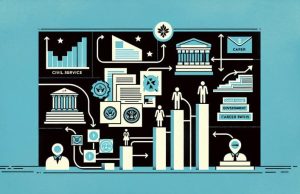As we stand at the threshold of a new era in which artificial intelligence (AI) is no longer a futuristic concept but a tangible and rapidly advancing presence in our daily lives, the recruitment sector faces significant transformation. AI’s capabilities are expanding at an astonishing rate, leading to both excitement and trepidation within the realms of work, worker, and workplace dynamics—a trio of elements intimately tied to the identity and function of our society.
For recruiters, the implications of AI integration are vast and complex. Traditional methods of talent sourcing and hiring are being challenged by algorithms that can sort through resumes at superhuman speeds, assess candidates through sophisticated data analysis, and even predict job performance with unsettling accuracy. The promise of increased efficiency is tempered by the pressing question of how these technologies will reshape the human aspect of recruitment—a craft that relies heavily on intuition, empathy, and interpersonal relationships.
In the face of these developments, job security has become a hot-button issue. Workers across various industries are asking a daunting question: to what extent can—and will—AI substitute human labor? Reports of automated checkouts, driverless vehicles, and AI-driven customer service can make it seem as if no job is immune to the relentless march of technology. However, history teaches us that while technological revolutions do disrupt the status quo, they also give birth to new opportunities and job categories that we can hardly imagine today.
The ethical considerations in employing AI in recruitment are numerous and nuanced. How do we address the potential biases inherent in AI algorithms? What are the privacy implications when it comes to collecting and analyzing vast amounts of candidate data? Recruiters must navigate these waters with care, ensuring that AI serves to enhance human decision-making rather than undermine it.
Recruiters have the opportunity to act as mediators between the potential of AI and the protection of the workforce. Striking the right balance will require a commitment to transparency, continuous education, and open dialogue about the changes AI brings. It will also necessitate a reimagining of roles, where human recruiters focus on the human elements—cultural fit, interpersonal skills, creativity—that AI cannot replicate.
Moreover, it is crucial that organizations and their employees are prepared to adapt to these shifts. This means investing in continuous learning and reskilling initiatives, promoting a culture of agility, and fostering an environment where innovation is rewarded.
With AI poised to play a dominant role in the job market, recruiters are in a unique position to guide candidates toward future-proof careers. This involves not only identifying skills that will be in high demand but also helping individuals cultivate a mindset of resilience and adaptability. In navigating the uncharted territory of AI in recruitment, we must remember that our most valuable resource remains the human spirit—ingenuity, curiosity, and the ability to dream beyond the bounds of what machines can offer.
As recruiters and society as a whole venture into this new landscape, we would be wise to draw upon the lessons from past technological disruptions. The industrial revolution, the advent of the personal computer, and the rise of the internet were all met with predictions of widespread job loss. Yet each time, the job market adapted, evolved, and ultimately expanded. By keeping these historical precedents in mind, we can approach the AI revolution not with fear, but with a strategic framework that harnesses AI’s potential while safeguarding the irreplaceable value of human contribution in the workplace.




























